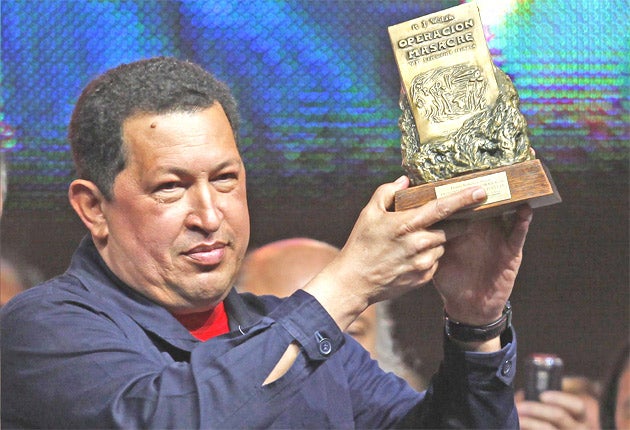Chavez awarded journalism prize

He may not be everyone's idea of a crusader for press freedom, but Hugo Chavez has been given one of Latin America's most prestigious journalism awards, for his contribution to "popular communication".
The Venezuelan leader, who is on a tour of Argentina, received the University of La Plata's annual Rodolfo Walsh Prize for what judges called his "unquestionable and authentic commitment" to media that support "human rights, truth and democratic values".
The award was supposed to recognise President Chavez's support for Telesur, the state-funded television network he set up shortly after he came to power in 1999. Supporters say the network has provided a valuable counterbalance to a news media controlled by right-wing opponents of his regime. But the award has angered critics who have long accused President Chavez of attempting to close down critical news outlets. In the past 10 years, he has forced 32 radio stations and two regional TV stations off the air.
In 2007, Chavez closed down the opposition RCTV channel by not renewing its licence. Last year, he forced cable networks to drop RCTV International, its sister station, because it refused to carry his lengthy speeches and government-mandated programmes.
Join our commenting forum
Join thought-provoking conversations, follow other Independent readers and see their replies
Comments
Bookmark popover
Removed from bookmarks